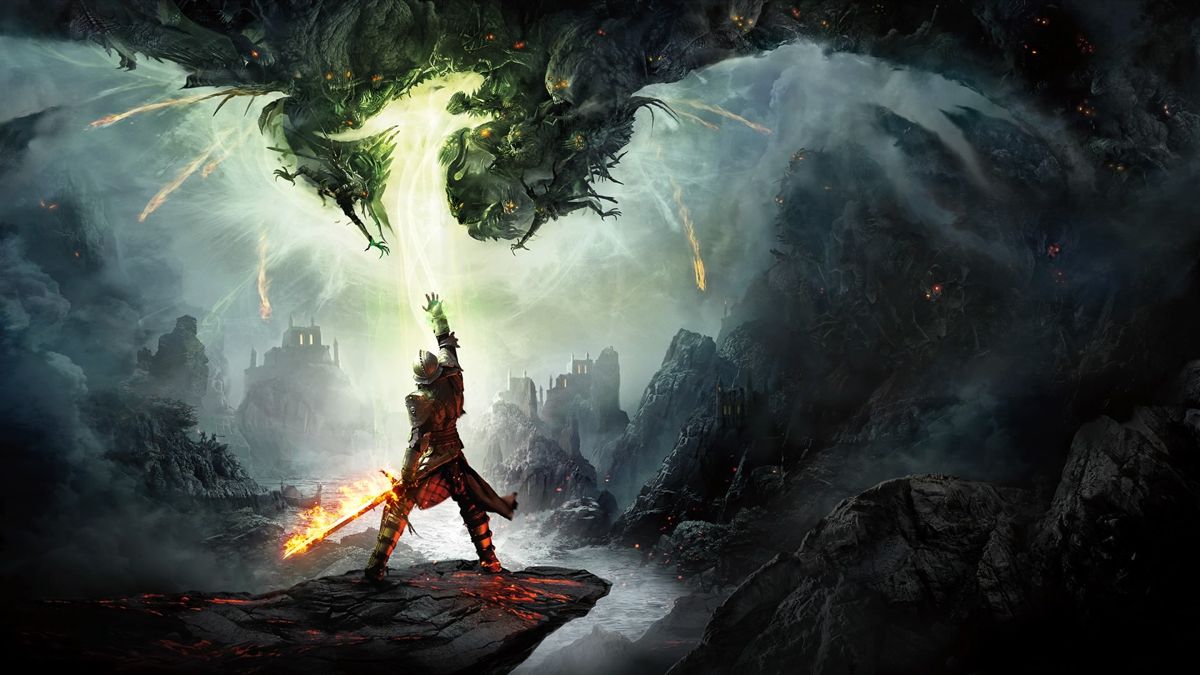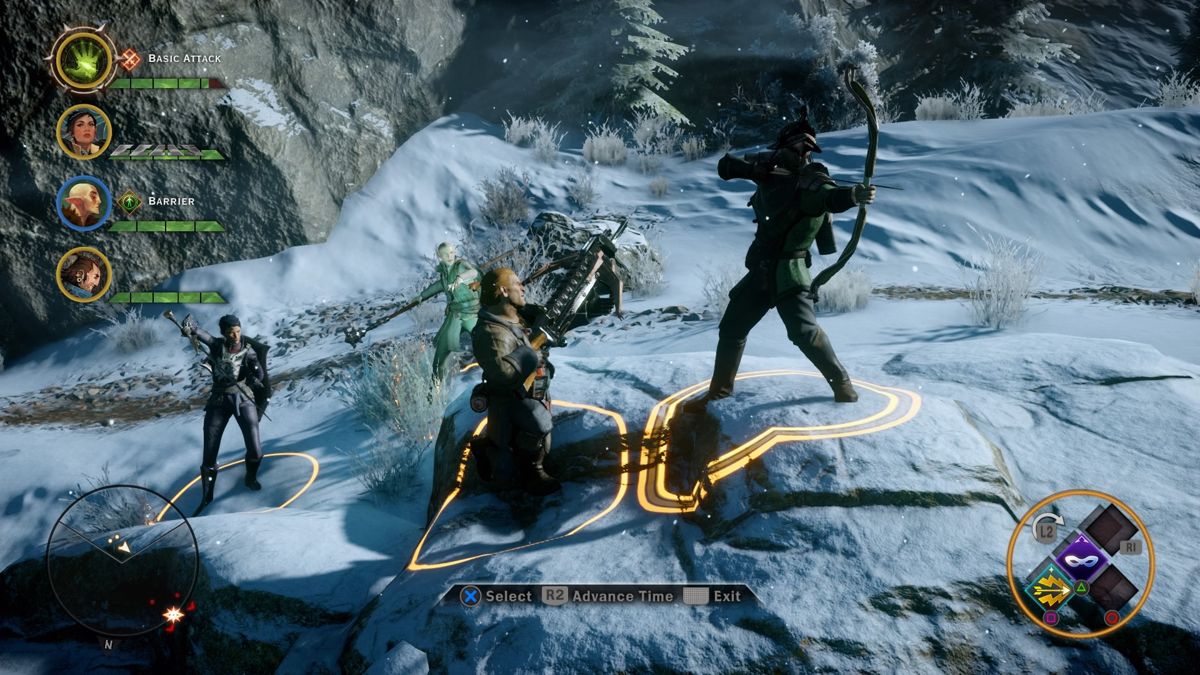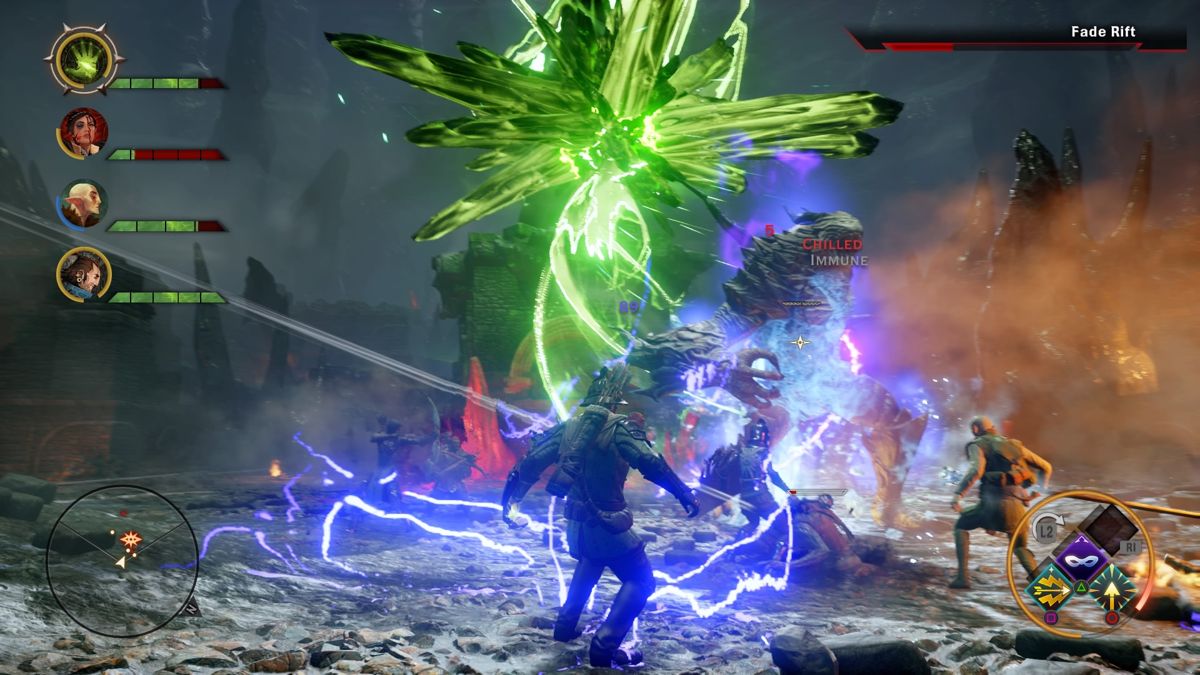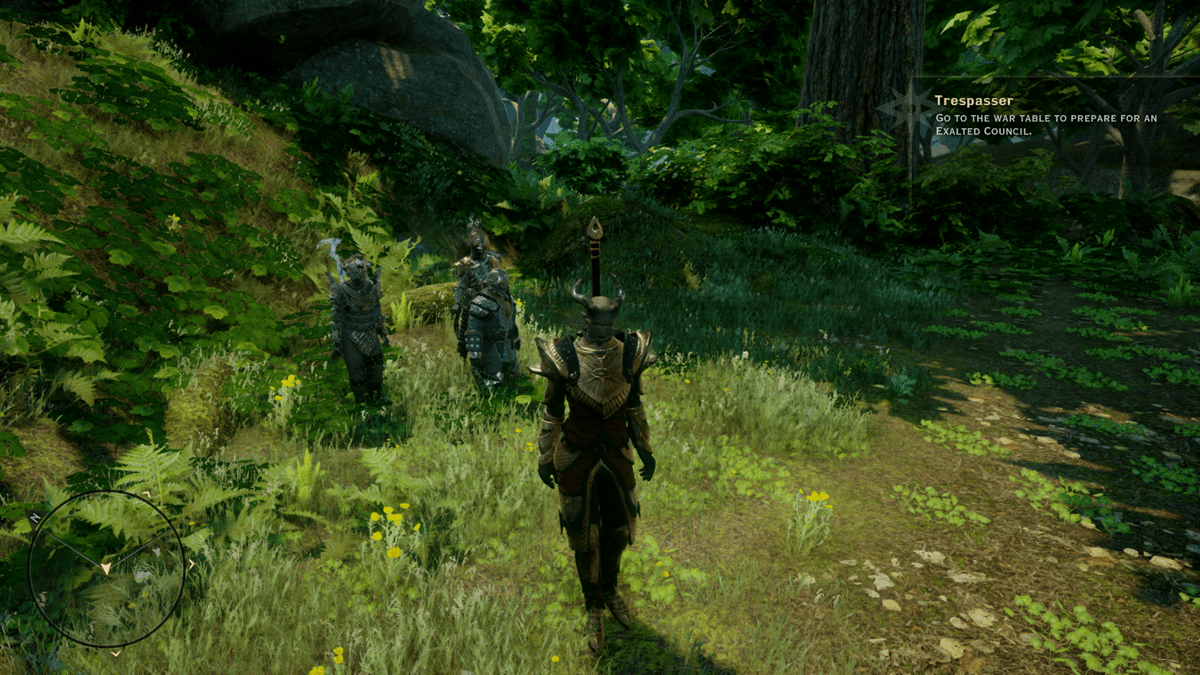As the third major entry in the Dragon Age series, Dragon Age: Inquisition is a game that, while developing its sequel, still ultimately falls short of reaching the dizzying heights set by the first entry in the series.
Dragon Age: Inquisition, developed by BioWare, is the third installment in the cherished Dragon Age series. It represents a major evolution from its predecessor, Dragon Age II, incorporating elements that were well-loved in the original Dragon Age: Origins but also introducing new features that stand on their own. While Inquisition improves upon Dragon Age II in many respects, it falls short of the exceptional standards set by Origins.
Despite these disparities, Inquisition deserves recognition for its strengths and weaknesses, illustrating a bold and ambitious attempt to blend the best elements of its predecessors, even if it doesn’t always succeed.
On This Page
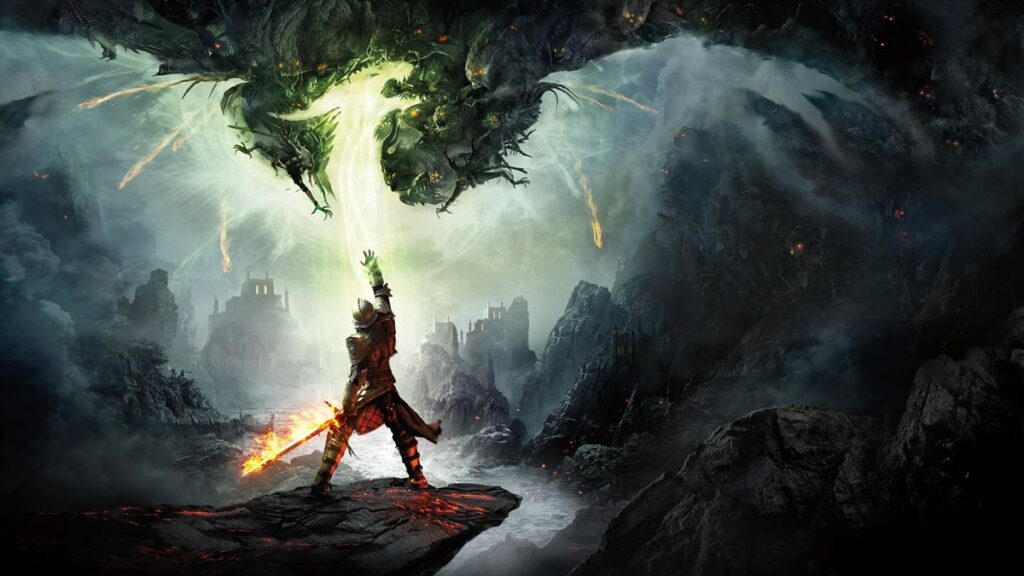
Vast open world
The game’s scope is the most evident improvement over Dragon Age II. Inquisition’s world is a vast and expansive one, offering players a range of diverse environments to explore, from lush forests and arid deserts to snowy mountains.
This starkly contrasts the confined cityscape of Kirkwall, the primary setting of Dragon Age II, which was often criticized for its repetitive and limited environments. The freedom to explore different regions in Thedas in Inquisition provides a much-needed sense of scale and diversity, creating a world that feels alive and dynamic.
Moreover, while Inquisition’s world is vast and diverse, it sometimes feels empty and lacks the dense, detailed environments that made exploration in Origins so rewarding. The open-world design often leads to a sense of aimlessness, with many quests feeling like filler content rather than meaningful additions to the narrative.
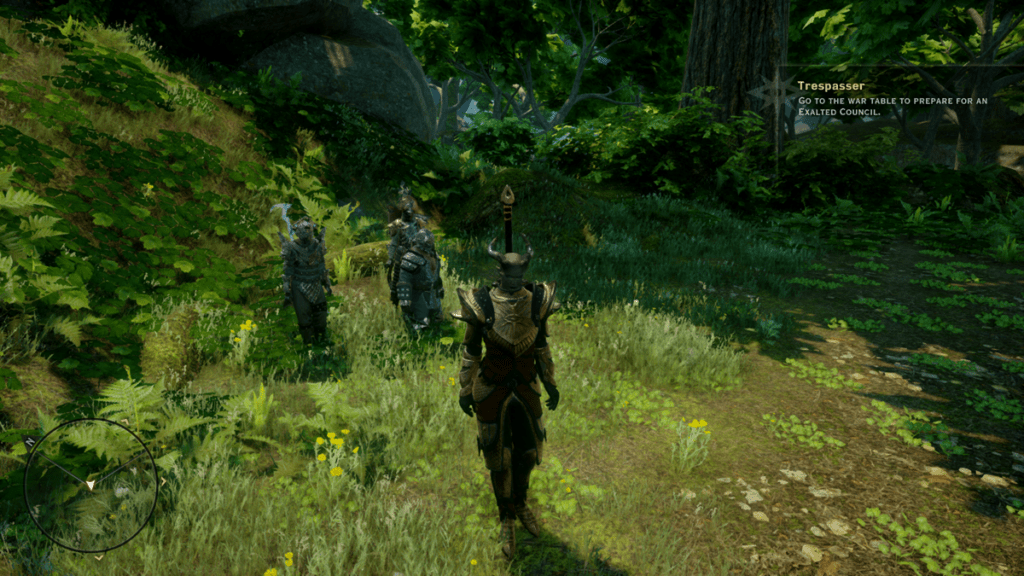
New gameplay mechanics
Inquisition introduces several new mechanics that enrich the gameplay. The War Table, for example, allows players to send their agents on missions, adding a layer of strategy outside of combat. The crafting system is also more detailed than previous games, allowing players to create and customize their gear. The inclusion of mounts also adds an enjoyable element of exploration.
Narrative Structure
Another area where Inquisition outshines Dragon Age II is in its narrative structure. While Dragon Age II’s story was criticized for its linearity and lack of overarching stakes, Inquisition returns to the epic, world-shaping conflict that was a highlight of Origins.

Players find themselves in the important role of the Inquisitor, tasked with resolving a civil war and closing a tear in the fabric of reality known as the Breach. This epic narrative, combined with its diverse and colourful characters, offers a much more engaging and compelling storyline than its predecessor.
However, while Dragon Age: Inquisition improves upon many aspects of Dragon Age II, it doesn’t quite reach the heights of Dragon Age: Origins. One area where it falls short is in its character-driven storytelling. While Inquisition has a diverse and engaging cast, the depth and complexity of character relationships don’t reach the level of intricacy that Origins achieved.
The choices in Origins often dramatically impact your companions and their fates, forging deep emotional bonds. In Inquisition, although your decisions influence companion reactions, the impact feels less profound and personal.
Improvements upon Dragon Age 2
Inquisition’s most notable improvement over Dragon Age II is its expanded scope. The game boasts an impressive and diverse world, offering players access to various environments, from verdant forests and arid deserts to snowy mountain ranges. This starkly contrasts Dragon Age II’s primary setting of Kirkwall, a cityscape frequently criticized for its repetitiveness and limited exploration opportunities. Inquisition’s freedom to traverse different regions in Thedas gives players a much-needed sense of scale and diversity, contributing to a world that is not only larger but also much more immersive.

This expanded sense of scale extends to the narrative structure. The plot of Dragon Age II, with its focus on the linear and localized struggles of Hawke, was criticized for lacking the epic stakes that players had come to expect from the series. Inquisition addresses this, presenting players with high-stakes, world-shaping conflicts reminiscent of Origins. As the Inquisitor, players are tasked with resolving a massive civil war and closing a tear in the fabric of the universe known as the Breach. Paired with a vibrant, diverse cast of characters, Inquisition’s storyline is much more engaging and compelling than its predecessor’s.
Inquisition’s combat system is another area of significant improvement over Dragon Age II. The combat mechanics have been overhauled to be more strategic and challenging, requiring players to utilize their party’s abilities in a coordinated manner. Dragon Age II had shifted towards a more action-oriented combat system, but Inquisition brought back the strategic elements that made the combat in Origins so engaging. The result is a combat system that is more satisfying and more in line with the series’ roots.
Tactical combat system
The tactical combat system in Inquisition is also a significant improvement over Dragon Age II. The combat is challenging, requiring players to use their party’s abilities to overcome foes strategically. While Dragon Age II’s combat was more action-oriented, Inquisition brings back the strategic element that made combat in Origins so rewarding, albeit in a streamlined and more accessible manner.

Player choice and consequence
Inquisition emphasizes player choice and consequence, a defining feature of Origins that was noticeably diluted in Dragon Age II. Inquisition also embraces player choice and consequence, crafting a narrative where decisions matter and have far-reaching implications. This is a step up from Dragon Age II, where the impact of player decisions often felt minimal and disconnected from the overall narrative.
In Inquisition, players’ choices have far-reaching implications on the world and their companions, making for a more dynamic and engaging role-playing experience.

However, while Inquisition makes strides in improving upon Dragon Age II, it does not quite reach the heights of Dragon Age: Origins. One area where Inquisition falls short is its character-driven storytelling. Origins was well-known for its intricate companionship dynamics and the emotional depth of its characters, with players’ choices having profound impacts on their companions’ fates. In comparison, the relationships in Inquisition, while still significant, are less complex and emotionally impactful.
Simplified RPG Elements
Another area where Inquisition falls short of Origins is in its RPG mechanics. Origins was praised for its deep and complex systems, which allowed for a high degree of character customization and strategy. In contrast, Inquisition streamlines many of these elements, simplifying the skill trees and limiting class and race-specific dialogue options. This results in a game that, while more accessible, lacks some of the depth and complexity that defined Origins.
Conclusion
In conclusion, Dragon Age: Inquisition is a game that stands tall as an improvement over Dragon Age II, addressing many of the previous game’s shortcomings and building upon its strengths. However, it does not quite live up to the high bar set by Dragon Age: Origins. The deep, intricate character relationships, the finely detailed environments, and the complex RPG mechanics of Origins are not fully realized in Inquisition.
Does this mean that Inquisition is a disappointment? Not at all. It is still a solid, engaging, enjoyable RPG full of beautiful scenery, epic battles, and memorable characters. It tells a compelling story and offers players a vast world to explore and shape through their choices. However, Inquisition may fall short of expectations for those seeking the depth, complexity, and intimacy of Dragon Age: Origins.
Despite its shortcomings, Dragon Age: Inquisition is still a worthy entry in the Dragon Age series. It is a testament to BioWare’s willingness to experiment, to listen to its players, and to continually strive for improvement. Even if it doesn’t quite reach the heights of Origins, it remains a game that is well worth playing. In the end, the value of Inquisition, like any game, will depend on what each player values in their gaming experience. For many, Dragon Age: Inquisition will provide an experience that is both satisfying and memorable.
In the end, whether Dragon Age: Inquisition lives up to the legacy of Origins will depend mainly on what you value most in a role-playing game. You might find Inquisition lacking if you crave deep, complex systems, intimate character relationships, and a densely packed world. But if you enjoy epic narratives, beautiful open-world landscapes, strategic combat, and the freedom to shape a story through your choices, then Dragon Age: Inquisition offers much to love. It may not reach the heights of Origins, but it is a worthy entry in the Dragon Age series and an experience worth having.
Joys
- Vast open world
- Improved tactical combat system
- A well-written narrative
- Interesting characters
- A substantial amount of player choice and consequence
- New gameplay mechanics
Cons
- Simplified RPG Elements
- An overabundance of fetch quests
- The open world can sometimes feel empty
- While interesting, the characters are not as intimately developed as compared with those in Origins

